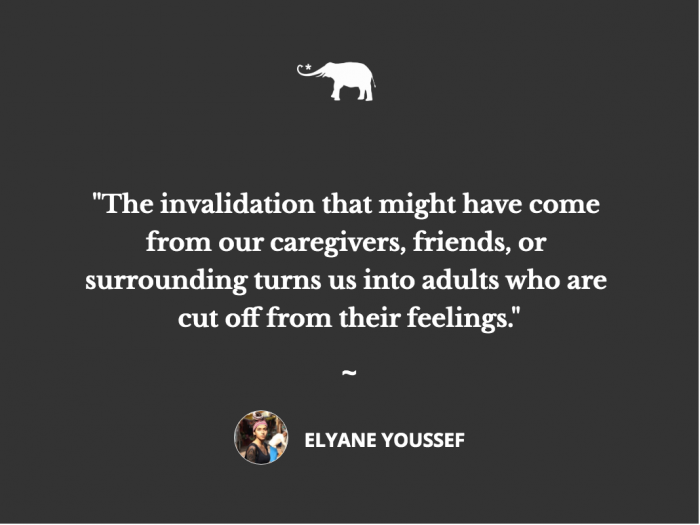View this post on Instagram
The food court was busy and crowded.
But I needed to recharge my laptop and find a decent table where I could rest and work.
The only plug I found was below a bar with high chairs; it was the only available seating too. As I sat and familiarized myself with the place, a family of four adults and a five-year-old girl sat at the table right next to the bar where I was seated.
A few minutes later, the girl started crying. I wasn’t looking, but the girl’s whining was so obvious and loud. Five minutes later, the girl’s crying got louder. At that point, I was curious—not bothered, just curious. Why was she crying and where were her parents? So I looked.
The four adults sat normally as if there was no whining in the background. In fact, one of them was on the phone, the two men were talking, and the woman (who may be the mother) kept looking away from the little girl.
I looked at the little girl and there was an obvious pattern: the more neglected she was the louder she got. At some point, I felt she wasn’t really crying—she was screaming for attention.
After almost 10 minutes of nonstop crying, the man on the phone grabbed a tablet from his bag, and with nonchalance, said to the little girl, “Here, play with this.” Furious and full of tears, the girl threw away the tablet and said, “No one’s listening to me!” and continued crying. This man tried to “numb out” the girl’s feelings by giving her something to distract herself with, plain and simple.
Everyone has a different parenting style, and I’m sure all parents do the best they can and be the best parents they can be for their children. But in that moment, I felt sorry for the little girl.
I felt like going to her, hugging her, and asking her what was wrong. I felt like giving her what her parents failed to give her at that moment: validation.
I wholeheartedly believe that deep in our core we’re all well-intentioned; no one’s inherently bad. Maybe in that moment they didn’t know how to handle the situation; maybe they were tired; maybe it was their way of dealing with her tantrums. But that situation struck a chord within me.
I started thinking about what being emotionally neglected as children can do to us as adults. This 10-minute situation in this girl’s life might cost her her emotional and mental health as a grown-up. Haven’t we all been there?
Most of us have been rejected or invalidated as children and transformed into adults who are hungry and desperate for love.
Growing up, I had no idea that I had fear of abandonment, which was the result of a few childhood events. This fear stayed dormant for decades and reemerged—silently—in my relationships, career, and friendships.
And the same goes for emotional neglect. This girl might not consciously remember this moment as a grown-up, but the symptoms will surely redirect her to that exact situation in space.
The symptoms of emotional neglect almost always reappear in adulthood. The invalidation that might have come from our caregivers, friends, or surrounding turns us into adults who are cut off from their feelings. Because we weren’t given the attention we needed as kids, we grow up not capable of thoroughly understanding our different types of emotions. We struggle with expressing ourselves and smoothly navigating between “satisfactory” and “unsatisfactory” emotions.
With time, we might also struggle with low self-esteem, as we think that we are not deserving of love, attention, or validation. And it goes without saying that when we are rejected by our caregivers as kids, we most likely won’t deal well with rejection as adults.
And maybe (if not definitely), we might pursue the same pattern of rejection that we had experienced as kids and repeat it as adults. In other words, we might find ourselves running after emotionally unavailable partners or friends or figures because they remind us of “that moment of time” when our parents didn’t give us the needed attention when we were crying or dejected or angry.
In short, we become disconnected from the world and ourselves. This is childhood emotional neglect.
How can we overcome this issue?
If you’re a parent, please know that validating your kid’s emotions is essential and a priority. Sometimes we think that kids are just kids and they won’t tell the difference between rejection and validation or attention and negligence. Even if they can’t tell the difference consciously, the result will forever be ingrained in their subconscious and reemerge at different levels and events.
We can teach our kids at a very young age how to understand their feelings, how to process them, and how to cope with them. Always remember that an emotionally validated kid is an emotionally healthy grown-up.
If we don’t deal with our kids’ tears and screams now, rest assured that they will have to deal with their neediness and codependency as adults.
In the case of the little girl, I would have loved for her caregivers to hold her and ask her what she needed or why she was crying, and from there guide her toward a different reaction or action.
If you were/are the victim of childhood emotional neglect, please know that it’s not too late to become friends with your emotions. Stay curious, stay open, and name your feelings. Reach out if you need help. Ground yourself in your senses. Return to your breath. Feel your feelings. They’re all okay.
You’re okay.
~
 Share on bsky
Share on bsky






Read 11 comments and reply